Understanding the types of insurance your business needs is essential for protecting your assets and ensuring smooth operations. General liability and professional liability insurance are two critical types of coverage. Each serves different purposes and covers different risks. Knowing which one your business needs can save you from potential financial loss.
That said, this article will break down what each type of insurance covers and guide you in selecting the right one for your business.
What is General Liability Insurance?
General liability insurance is designed to protect businesses from a variety of common risks that can occur during everyday operations. This type of insurance covers incidents like bodily injury, property damage, and personal injury claims that might arise from your business activities. It’s essential for businesses that interact with clients or customers on a regular basis, as it helps mitigate the financial risks associated with these interactions.
Key coverages under general liability insurance include:
- Bodily Injury: Covers medical expenses and legal fees if someone gets injured on your business premises.
- Property Damage: Pays for repairs or replacements if your business operations cause damage to someone else’s property.
- Personal and Advertising Injury: Protects against claims of defamation, libel, or slander that arise from your advertising efforts or personal interactions.
For instance, if a customer slips and falls in your store, general liability insurance would cover their medical expenses and any legal costs that might arise if they decide to sue. Similarly, if your business accidentally damages a client’s property while performing a service, this insurance would cover the repair or replacement costs.
General liability insurance provides a broad range of protection and is a must-have for businesses of all sizes. It helps ensure that you can manage these unforeseen incidents without taking a significant hit to your finances.
What is Professional Liability Insurance?
Professional liability insurance, also known as errors and omissions (E&O) insurance, is crucial for businesses and professionals who provide expert advice or services. This type of insurance protects against claims of negligence, malpractice, or errors that result in a client’s financial loss. It is particularly important for professionals like consultants, lawyers, doctors, and accountants.
Key coverages under professional liability insurance include:
- Negligence: Covers claims arising from your failure to provide services to the expected standard of care.
- Misrepresentation: Protects against claims that you provided false or misleading information that resulted in a client’s loss.
- Errors: Covers mistakes or oversights in the services you provide that lead to client dissatisfaction or loss.
For example, if a consultant provides advice that leads to financial loss for a client, or if an accountant makes an error in a financial report that results in penalties for the client, professional liability insurance would cover the legal fees and any settlements or judgments.
Professional liability insurance is essential for protecting your business from the financial burden of defending against these types of claims. It ensures that you can continue to provide your services without the risk of crippling legal costs or damages affecting your business stability.
Key Differences Between General Liability and Professional Liability
Understanding the key differences between general liability and professional liability insurance helps you make informed decisions about your coverage needs. While both types of insurance provide essential protections, they are designed to cover different risks.
General Liability Insurance:
- Coverage: Covers bodily injury, property damage, and personal injury claims.
- Applicability: Ideal for businesses that interact with the public or operate physical locations.
- Examples: A customer slips and falls in your store; your employee accidentally damages a client’s property.
Professional Liability Insurance:
- Coverage: Protects against claims of negligence, errors, and omissions in professional services.
- Applicability: Crucial for service providers and professionals who offer expert advice or specialized services.
- Examples: A consultant gives advice that leads to financial loss; an accountant makes an error on a client’s financial report.
Summary of Key Differences:
- Risk Type: General liability covers physical risks; professional liability covers service-related risks.
- Industry: Different industries may require one or both types of coverage depending on their operations.
- Claims: General liability typically involves physical incidents; professional liability involves financial losses resulting from professional advice or services.
Understanding these differences ensures that you choose the right insurance to protect your specific business needs.
How to Choose the Right Coverage for Your Business
Choosing the right insurance coverage for your business involves assessing your specific risks and industry requirements. Here are some steps to guide you in selecting the best coverage:
1. Assess Your Risks:
- Identify common risks associated with your business operations.
- Determine if these risks are more related to physical incidents (general liability) or professional services (professional liability).
2. Consult Your Industry Standards:
- Check if your industry has specific insurance requirements.
- For example, healthcare providers may need professional liability, while retail stores may require general liability.
3. Evaluate Your Client Interactions:
- If you regularly interact with clients face-to-face, general liability is essential.
- If you provide specialized advice or services, professional liability coverage is crucial.
4. Review Legal Obligations:
- Ensure you meet any legal obligations for your industry regarding insurance coverage.
- Some contracts may require specific types of insurance to be carried.
5. Compare Policy Options:
- Obtain quotes from multiple insurers and compare their coverage offerings.
- Consider both the cost of premiums and the extent of coverage provided.
Making the right choice involves evaluating these factors to ensure you have comprehensive protection for your business.
Conclusion
Understanding the differences between general liability and professional liability insurance helps you make informed decisions about your coverage needs. Each type of insurance addresses distinct risks, with general liability covering physical incidents and professional liability covering service-related errors. Properly assessing your business risks, industry standards, and legal obligations will guide you in choosing the most suitable insurance for your operations.
Adequate insurance coverage is essential for protecting your business against unexpected financial burdens. General and professional liability insurance provides crucial safeguards, ensuring your business can thrive without the worry of potential claims and lawsuits. If you’re unsure which coverage is best for your business, consulting with a professional insurance broker can help you navigate these options.
For personalized advice and detailed solutions tailored to your business needs, contact Ai Insurance Organization Inc. Our expert brokers are ready to help you find the right business insurance coverage to protect your business.
Disclaimer: The information provided in this article is intended for illustrative purposes only and should not be considered as actual insurance advice. Our articles offer insights and general guidance on various insurance topics; however, they do not substitute professional advice tailored to your specific circumstances. For expert, personalized insurance advice and solutions, please contact our licensed insurance brokers.












